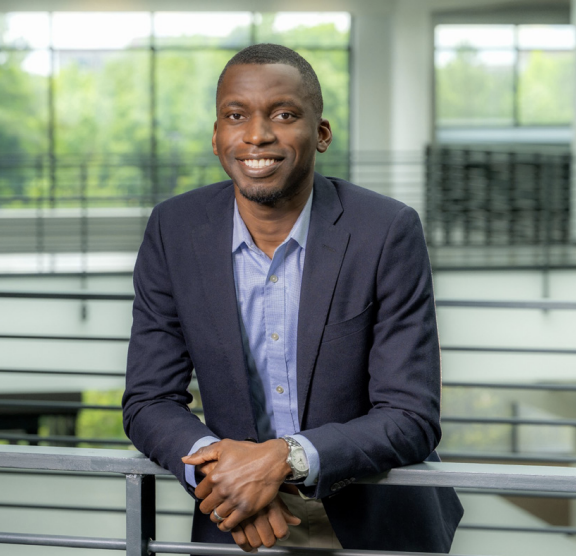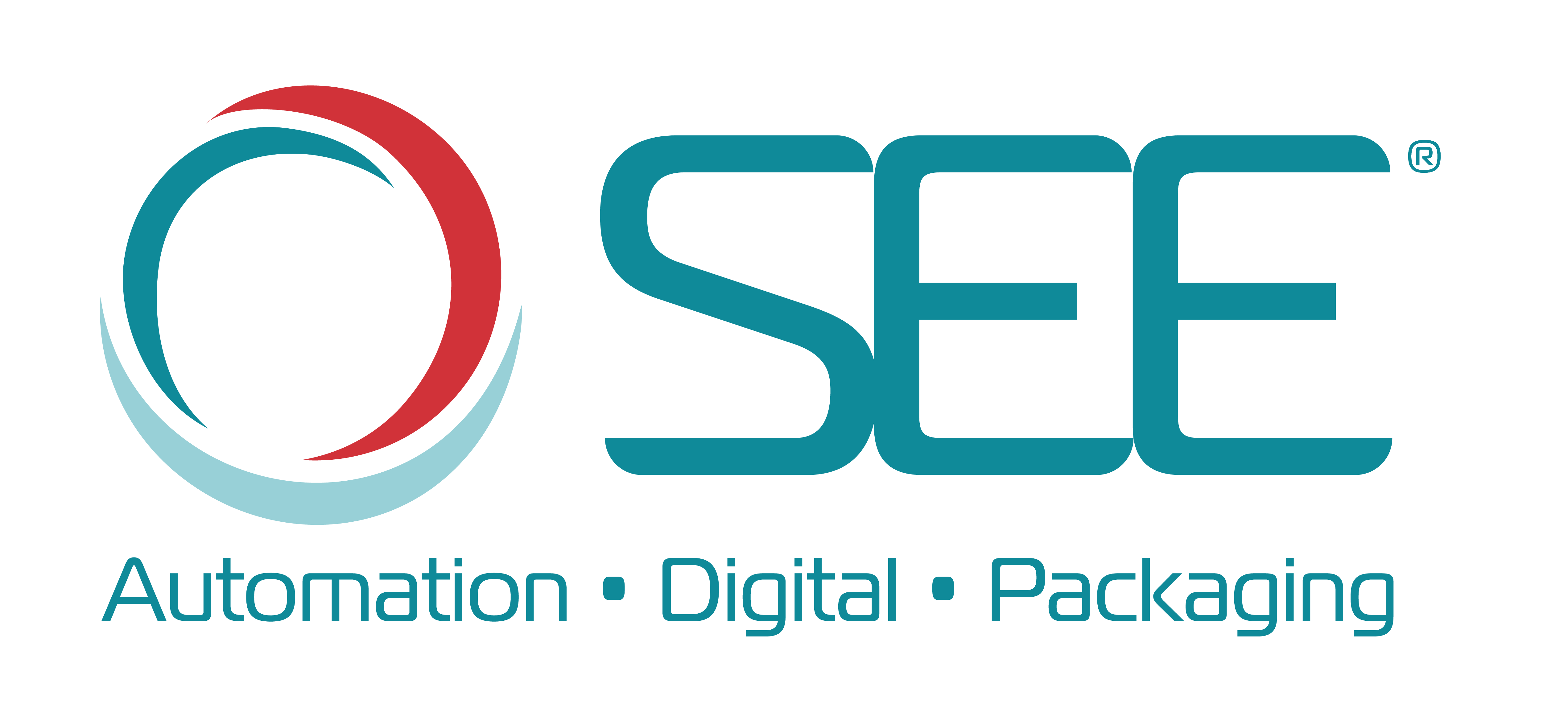From the SEE Impact Report: Q&A With Timi Fadiran, Ph.D.

Originally published in the SEE Impact Report 2022
Timi Fadiran, Ph.D. is a manager on SEE’s sustainability technology innovation team and is responsible for identifying and advancing new technologies to accelerate transitions to circular business models. He leads SEE’s collaboration efforts with advanced recycling technology providers, investigating the acceptability of essential packaging in these processes and establishing specifications for advanced recycling technologies. Timi was featured as one of America’s Change Makers in the American Chemistry Council’s campaign recognizing those who are leading sustainable change in the plastics industry.
Why is circularity so important to SEE?
Circularity may sound like a new term, but many of us have been practicing it for a while. Those who drop off shopping bags and other flexible plastics at storefront bins are participating in a form of circularity. We’re allowing those materials to be remade into new products. Many people understand it’s irresponsible to waste products and see the value in repurposing materials when they have reached end of use. This is why the concept of recycling is attractive to most consumers. Circularity is simply renewing or regenerating products rather than wasting and discarding them.
SEE believes achieving circularity is critical to keeping plastic waste out of landfills and our environment, as well as reducing the need for fossil resources. SEE's packaging solutions are made to reduce waste, but we must continue to innovate to eliminate plastic waste. If we are not able to achieve circularity of flexible packaging, the problem of plastic waste will only continue to grow.
How is SEE driving the industry in creating circular value chains that prevent waste, enable the recovery of materials, and reduce dependence on natural resources?
SEE is uniquely positioned to drive circularity in the flexible packaging industry because of relationships with plastic producers and customers. Our position in the value chain allows us to understand the life cycle of products from raw materials manufacturing to final end use or disposal.
SEE has established in-house testing capabilities to assess the recyclability of our products in the mechanical recycling infrastructure that exists today. We are also looking past the current recycling infrastructure and exploring emerging solutions such as advanced recycling (i.e., chemical or molecular recycling) to process hard-to-recycle plastic waste and remanufacture it into plastics that can be used over and over again. Advanced recycling refers to several technologies that use chemistry to enable a broader range of plastic products to be recycled, including hard-to-recycle flexibles with multiple layers and packaging solutions that have contacted food.
SEE can further enable circularity by manufacturing its solutions with recycled content produced from recovered flexible packaging, thus reducing our dependence on natural resources. SEE is driving the industry through demonstrations such as the circular solution collaboration with ExxonMobil and Ahold Delhaize USA where food packaging waste was diverted from landfill, processed through an advanced recycling process, and attributed to new food-grade packaging materials for poultry. This collaboration demonstrated the technical, economic, and scalable feasibility of solutions based on advanced recycling and circular economy business models.
In what ways has SEE been investing and collaborating to accelerate scalable circularity solutions?
Investments and collaborations present opportunities to accelerate speed to market of scalable solutions while leveraging innovation to create a sustainable competitive advantage. SEE has participated in a number of projects that have proven advanced recycling is a viable circular solution for hard-to-recycle food packaging waste.
SEE made an equity investment in 2020 in Plastic Energy (an industry-leading company in advanced recycling technology) to drive materials circularity and expand the recyclability of packaging. The research collaboration is ongoing and resulted in a successful closed-loop demonstration that took flexible plastics collected from store drop-off locations and recycled them into new food packaging. SEE has also made investments in the Alliance to End Plastic Waste and Closed Loop Partners to advance circularity initiatives that address plastic waste.
SEE is a member of the REMADE Institute, which brings together industry innovators, academic researchers, trade organizations, and national labs to lead the transition to a circular economy in the U.S. Through the institute, we piloted a project with Michigan State University exploring the development of more effective ways to sort and clean contaminated plastic waste.
Our activity in this space makes one thing clear: Collaboration is essential. No one member in the value chain can do this alone. Industry experts, competitors, academia, trade organizations, and other groups must work together to innovate, scale the lack of robust recycling infrastructure, and drive toward a more circular economy. Cross-collaboration is critical to solve the complex challenge of eliminating plastic waste.
How are you and your team contributing to the SEE’s circularity efforts?
My team is at the forefront of identifying and advancing new technologies such as pyrolysis and gasification to enable the recovery, processing, and repurposing of SEE's flexible packaging solutions. We collaborate with customers to understand their plastic-waste challenges, including the amount of different types of plastic in the waste they generate, the level of food contamination present in waste, and viable options for recycling plastic waste.
We collaborate with circular technology providers to evaluate things such as the required preparation of plastic waste, the impact of hard-to-recycle flexible packaging made of multiple plastics, and the tolerance for food contamination in their processes. We use chemistry to help us determine the limits of hard-to-recycle plastics and food contamination in advanced recycling processes. We are working to establish new outlets for recycling flexible plastics and enabling SEE and its customers to achieve ambitious sustainability goals and reduce environmental impacts.

